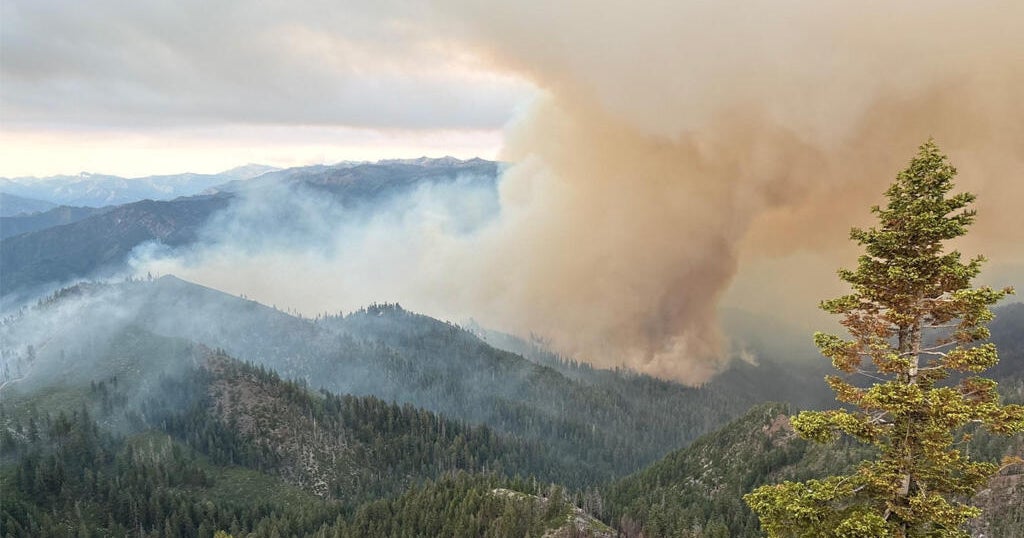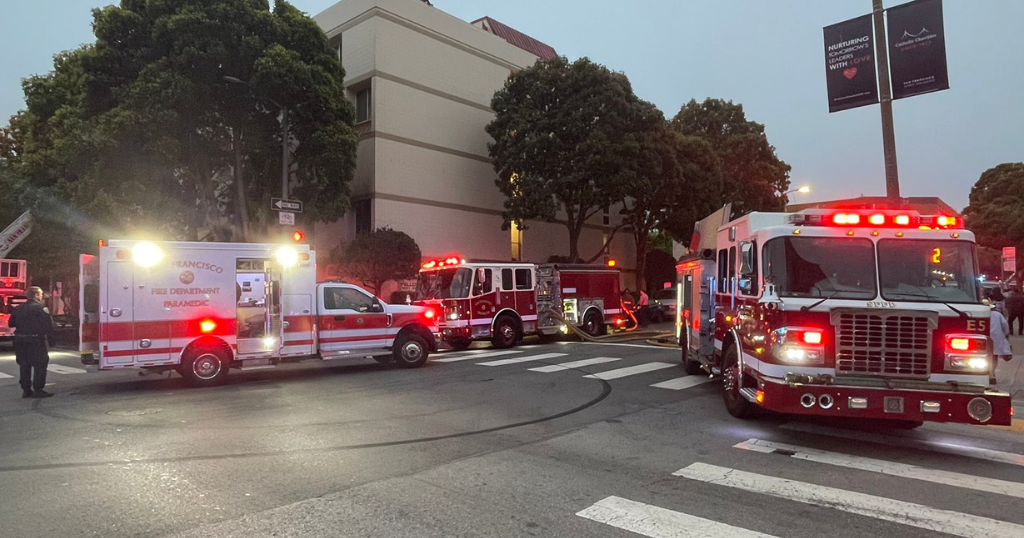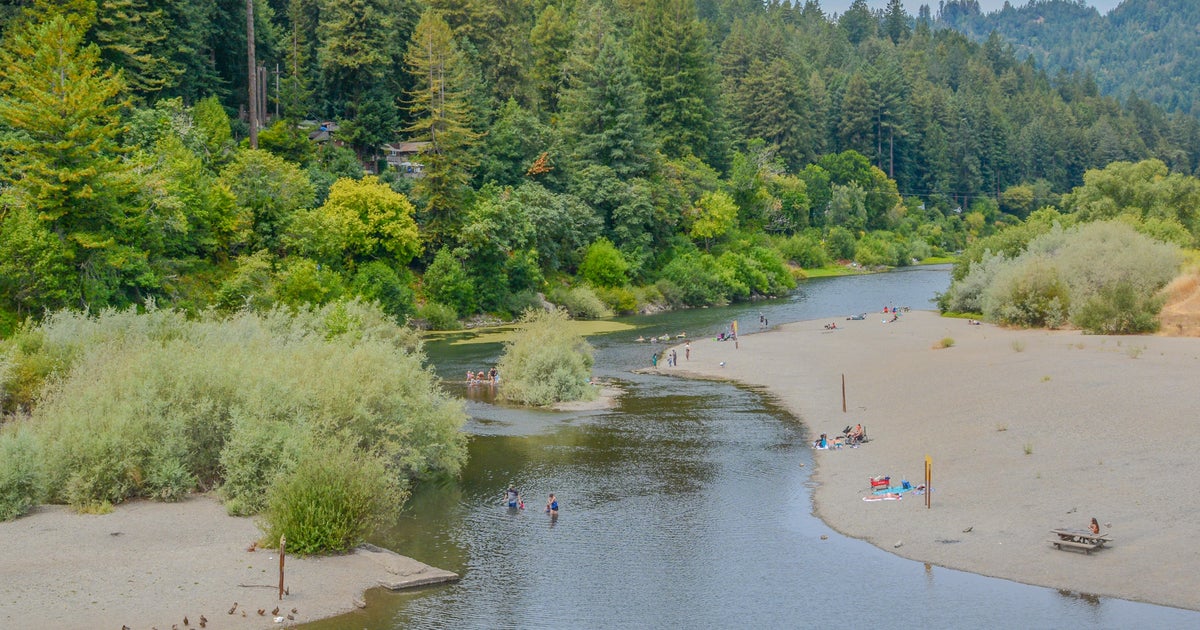Newsom Calls Energy Shortages, Rolling Blackouts During Heat Wave 'Unacceptable'
SACRAMENTO (CBS SF) -- Gov. Gavin Newsom on Monday admitted that state officials "failed to predict and plan" for the energy grid demands brought on by the current record-breaking heat wave and outlined steps the state was taking to try to avoid more power disruptions.
Newsom focused much of his discussion Monday on the issues that the state's power grid had faced since Friday due to the heat wave. He said he was given a note about the California ISO issuing a Flex Alert due to the demands on the grid during his Friday address. The stress on the state's power supply led to rolling blackouts Friday night and Saturday, though Newsom noted that adjustments were made on Sunday that allowed for only minor service disruptions.
But the continuing heat wave and even higher forecast temperatures in the coming days would be putting an increased stress on the power grid that Newsom said the state was trying to address.
"We're not just going to accept that as fate. We're going to try to work and reduce the stress and reduce the need to reach that 4,400 megawatt goal through different strategies of demand reduction and procurement of new energy," Newsom said. "This next few days, we are anticipating the challenge as it relates to all of these conditions precipitated at once in this historic moment."
He went on to acknowledge that the state had let its residents down with the rolling blackouts that were required to keep the grid functioning.
"You can't control the weather but you can prepare for these weather events. Let me make this crystal clear: we failed to predict and plan for these shortages and that's simply unacceptable," said Newsom. "I'm the governor. I'm ultimately accountable and will ultimately take responsibility."
Newsom said state officials worked through the weekend to address the energy crisis and take actions to conserve energy.
Earlier Monday, Newsom issued an emergency proclamation to shift energy consumption, encouraging large energy users to shift to back-up power supplies and reduce usage during peak hours and have utilities use power stored for public safety power shutoffs that would ordinarily happen during increased fire danger. Newsom said the state was also working with ships in California's ports to reduce consumption.
Newsom explained that he has also initiated an investigation into the energy shortage that forced the rolling blackouts over the weekend, sending a letter demanding that the state energy commission, state public utilities commission and the California Independent System Operator determine what led to the blackouts and look at implications for the future.
Newsom said that accepting energy delivery problems because of record-breaking heat events is no longer an option and the state's energy systems must adapt to the new reality of climate change.
"We need to make sure that we have a demand-response system and we have reliability that meets the expectations that we have all forecasted around issues of climate change and around the prospects that this is not the last - quote, unquote - record-breaking historic heat dome and experience that we'll have in this state or in this region or in this nation or in our hemisphere in our lifetime," explained Newsom. "Quite the contrary. This is exactly what so many scientists have predicted for decades. It's manifesting quite acutely here on the West Coast of the United States also manifesting in droughts, not just wildfires."
Newsom also outlined what the state's residents could do to reduce power supply demands and conserve energy during peak demand, including cooling homes and offices overnight and, in the early morning, setting thermostats to 78 degrees between 3 p.m. and 10 p.m., using major appliances during off-peak hours and turning off all unnecessary lights.
Earlier, Newsom began his comments by outlining some of the extraordinary weather events that had hit the state in the past week, including the unusual thunderstorm that produced thousands of lightning strikes that sparked dozens of fire that were stoked by gusting winds as well as the record-breaking heat wave that has gripped the West Coast.
Newsom noted that there were wind gusts of up to 74 miles per hour in the Santa Cruz Mountains and that the heat wave had produced the hottest run of temperatures over an extended period for the entire Western United States. Death Valley recorded a high of 130 degrees Fahrenheit, a global record high temperature in the modern era.
The lightning strikes started a number of active wildfires, Newsom said. While the Ranch Fire and Lake Fire in Angeles National Forest were burning well before the weekend's thunderstorm, lightning has sparked many of the 15 active wildfires currently burning in California including the River Fire in Monterey County, the Deer Valley Complex Fires near Mount Diablo, the Marsh Complex Fires in Alameda County and new fires in Napa County that started Monday morning.
Newsom thanked the federal government and the Trump administration for the assistance that the state had received in terms of FEMA funds that will help cover the cost of fighting the fires and in recovery after the fires are out.
With the fire and energy concerns addressed in Monday's press conference, Newsom didn't get to talking about the state's latest COVID-19 numbers until well into the event.
The governor said the current trend lines are improving, with the 14-day positivity rate dropping to 6.5 percent, a 21 percent decline in hospitalizations over 14 days and a 16 percent drop in ICU admissions over the past two weeks.
Despite the improving numbers, some 38 counties including all nine Bay Area counties are currently on the state's watch list.



